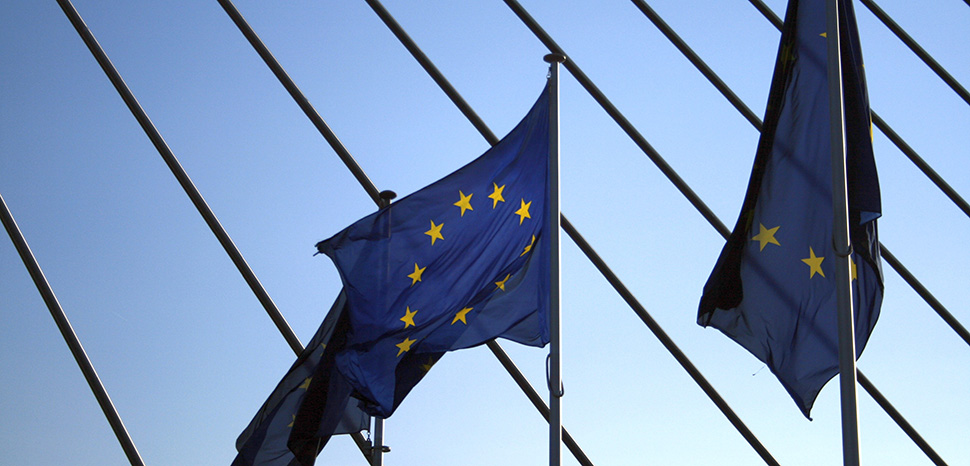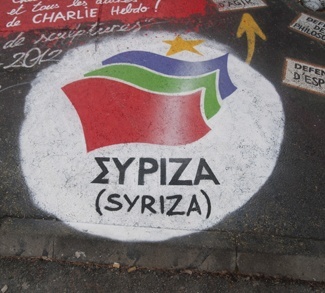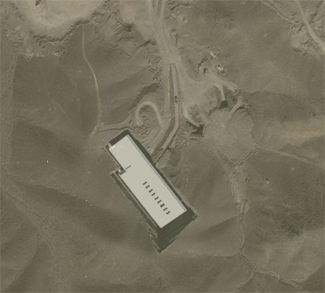The European Council summit in Brussels on March 21 voted to open accession negotiations with Bosnia and Herzegovina to set the stronger path to EU membership. The strongest supporter and partner of Bosnia and Herzegovina on this path is Croatia, as the only EU member state whose citizens represent one of the three constitutional ethnic groups of Bosnia and Herzegovina. However, the date for the beginning of negotiations is not yet set. This is a positive step overall, as integration into the EU might serve as transition out of the Dayton Agreement.
Geopolitics in the Western Balkans
Bosnia and Herzegovina’s geopolitical importance in the Western Balkans stems from being at the crossroads between the East and West and the Eastern Orthodox, Roman Catholic, and Islamic worlds, making it a melting pot of religions, historical influences, and cultures. This unique position has historically made it an area of strategic interest and competition among nations.
While Bosnia and Herzegovina has a very limited coastline, its proximity to the Adriatic Sea, positioning near major sea routes and ports in the region enhance its strategic importance, especially in terms of trade and military mobility. The country’s complex ethnic and religious demographics, consisting of Bosniaks (primarily Muslim), Serbs (primarily Orthodox Christian) and Croats (primarily Catholic), reflects wider regional diversities and tensions. The interplay of these ethnic groups within Bosnia and Herzegovina is a microcosm of the broader Balkan dynamics, influencing peace, stability, and relations in the region.
The dissolution of Yugoslavia in the 1990s gave rise to the Bosnian War (1992-1995) and the subsequent establishment of the independent state of Bosnia and Herzegovina with the Dayton Agreement. During this period, Russia supported the Serb population in Bosnia, particularly those who sought to maintain closer ties with Serbia and Russia.
Since the 1990s geopolitical rivalry over the area has intensified. The ongoing war in Ukraine has worsened already tense relations between Russia and Western countries, contributing to increased tensions in the Balkans.
Over 20 years since the conflicts in Bosnia and Herzegovina (Yugoslavia), the institutions established to manage the diverse demands of various ethnic and religious groups are showing signs of instability. As a significant part of this region strives for closer ties with the EU and NATO, Western governments believe that Moscow is exploiting existing tensions to obstruct these foreign policy aspirations.
The situation shifted recently, as the invasion of Ukraine arguably weakens Russia’s influence in the Balkans. This presents a chance for Western nations to renew their engagement with the area.
Russia’s Interests in Bosnia and Herzegovina
Efforts to integrate Balkan countries into Western organisations have faced steady opposition from Russia and nationalist and separatist forces in those areas, especially given the ongoing threat of unresolved disputes in Bosnia and Herzegovina, as well as between Serbia and Kosovo.
In European nations, where political structures are significantly more robust, the rise of xenophobia and populism is causing upheaval, making the Kremlin’s support for far-right and authoritarian-leaning leaders in the Balkans a cause for concern. Russia’s actions are likely to promote a regression in democratic practices and increase political divisions, both of which pose challenges to the ambitions of Balkan countries wanting to join the EU and NATO.
The Kremlin’s strategy in the Balkans serves as a distraction, diverting Western attention from Russia’s more concerning manoeuvres elsewhere, such as the military escalation in the Sea of Azov, the deteriorating conflict conditions in eastern Ukraine, the advancing boundary line in South Ossetia, and Moscow’s covert influence campaigns in post-Velvet Revolution Armenia. For Russia, engaging in the Balkans is a tactic to shift focus away from these activities and to impact wider European security and economic structures.
Energy, investments, business deals and military cooperation all serve as key economic vectors for Russian influence in the Western Balkans. The effective use of energy as a means of diplomacy showcases the critical importance of fossil fuels within the Russian economy. Moscow has consistently aimed to minimize its dependence on Ukraine for gas transit, favoring Southeastern Europe as an alternative route. This strategy has also involved making several European nations reliant on Russian natural gas.
Russia has supported Bosnian Serb separatist movements both formally, via the Republika Srpska, and unofficially, through various cultural, religious, educational, and paramilitary organizations. Moscow has increased its backing for Bosnian Serb leader Milorad Dodik, who has promised to secede the Republika Srpska from the national institutions of Bosnia and Herzegovina. Russian arms dealers have provided weapons to the police forces of the Republika Srpska, and Russian mercenaries have offered training to members of Bosnian Serb paramilitary units.
In Bosnia, Russian financial engagement is primarily directed through the Republika Srpska, a Serb-majority region, as a means for Moscow to exercise influence over Bosnia’s political direction. These investments have positioned Russia as the fifth-largest foreign investor in Bosnia. However, not all of Russia’s promised investments materialized or made profits. For instance, Russian billionaire Rashid Sardarov whose offshore company based in Cyprus has control over at least five energy enterprises there, committed to investing 800 million euros in the Republika Srpska in 2011. One of the thermal power plants he vowed to construct, planned for completion in 2017, has been indefinitely postponed.
NeftGazinKor, a company owned 40% by Russian oil company Zarubezhneft, manages oil refineries in the Republika Srpska towns Brod and Modriča, marking Russia’s most significant investment in Bosnia to date. Despite incurring losses of about $60 million since 2016, these refineries remain operational, indicating that Moscow values strategic influence in the Republika Srpska over direct economic returns. These ventures not only secure jobs for Bosnian Serb refinery workers and foster favorable opinions toward Russia but also enable Republika Srpska leaders to showcase their alliance with Moscow and possibly own the stakes in the company.
Furthermore, Russia is represented as a crucial financial supporter of the Republika Srpska beyond just the energy sector. High-level discussions have been held between senior Russian officials and Milorad Dodik. Following the enforcement of Western sanctions on Dodik for organizing a 2016 referendum that breached the Bosnian Constitutional Court’s ruling, reliance on Russia has intensified. Since then, Russia financially supports the Republika Srpska and Milorad Dodik with hundreds of millions dollars of grants and loans.
Milorad Dodik is often a guest of Russia and has had meetings with President Putin, and other high officials. Recently, in his interview the Russian Ambassador to Bosnia and Herzegovina, Igor Kalabuhov thanked Milorad Dodik for friendly and extensive cooperation between Russia and Republika Srpska. The Russian Embassy in Sarajevo is one of the largest and most equipped, and could theoretically steer unrest and support Milorad Dodik should the need arise in the future.
Serbia’s Interests in Bosnia and Herzegovina
A central component of Serbia’s foreign policy is duplicity, whereby Belgrade simultaneously aspires to EU membership and closer relations with NATO, while balancing relations with other major powers in the belief can profit from each.
Serbia’s policy towards the region has not changed since the departure of Slobodan Milošević. However, different means are now being employed, and they are largely placed in the context of current events in the relationship between the West and the Islamic world, especially concerning Bosnia and Kosovo. Still now, as 30 years ago, a proposal for the reconfiguration of the Balkans along ethnic lines emerges from circles of national ideologists.
Serbia’s geopolitical interest in Bosnia and Herzegovina is to preserve the Republika Srpska and work on its possible annexation to Serbia. It is geopolitically important for Serbia because of the geopolitical pressure on Montenegro and access to the Adriatic Sea, seizing the opposite bank of the Drina River, and shifting the “civilizational boundary” westward, which further projects Serbian influence.
In Serbia, Republika Srpska is treated as a state to defend the constitutional rights of the Serbian people and that has been internationally verified by the Dayton Agreement. The dissolution of Bosnia and Herzegovina, or the independence of the Republika Srpska, is a stated goal to which both EU membership and the essential national interests of Serbia itself are subordinated. Therefore, nationalists believe that binding Serbia to European integration would de facto tie Belgrade’s hands when it comes to providing assistance to maintain the Republika Srpska.
Serbia also has interests in the military industry of Republika Srpska. Through stakes in various defense companies, the Serbian government under President Vučić can finance production of equipment for the military, while supporting Milord Dodik and also potentially supplying the Serbia and Republika Srpska’s militaries.
There are interests in the energy sector as well, related to gas supply from Serbia and building new pipelines toward Banja Luka to secure energy supply to Republika Srpska. This project is supported by Russia; notably, the pipeline project will not cover other parts of Bosnia and Herzegovina especially Sarajevo, Travnik, Brčko and Zenica.
This order of priorities dictates Serbia’s behavior towards Bosnia. The events of the 1990s and their interpretation as a liberation war remain the main obstacle for removing the fundamental impediment to state consolidation in Bosnia and Herzegovina, as well as the normalization of relations with Serbia.
Croatia’s Interests in Bosnia and Herzegovina
Welcoming a developed and stable Bosnia and Herzegovina as a member of the EU and NATO is one of the main interests for Croatia.
The Croatian government has invested considerable sums from the state budget into projects in Bosnia and Herzegovina. However financial support is not the only assistance that Bosnia and Herzegovina needs. Reform of the political system and proper representation of Croatian people in state institutions is even more urgent, especially in light of what Croatian Ambassador to the UN, Ivan Šimonović, stated during a Security Council meeting last year, that Željko Komšić is not a legitimate representative of the Croatians and was elected by misusing an electoral law in desperate need of reform.
In 2021, a NATO summit was convened to make decide on reforms of the Alliance by 2030. This is the summit where Croatian Minister of Foreign Affairs Gordan Grlić-Radman, who is part of the “Šeks and the City” elite, refused to attend with the Croatian president, claiming it was “beneath his dignity.” It was then that President Milanović insisted on including the Dayton Agreement and electoral reform in Bosnia and Herzegovina as a necessity to be agreed upon and implemented in the final NATO declaration, under threat that without it, he would not sign the declaration.
To the Croatian people, who are less numerous than Serbs in Bosnia and Herzegovina, and who formally do not dominate any entity, unlike Bosniaks and Serbs, there is no other option but to pursue their own policy in accordance with their national and other interests, which is only possible if they too have their secured rights and own entity – the Croatian Republic. If the Serbs can, then the Croats have the same right, and are also constitutive as an ethnic population.
It’s in the Croatian interest to supply Bosnia and Herzegovina with gas from the LNG terminal or possibly the Ionian-Adriatic gas pipeline coming from Split and continuing toward Mostar and beyond. This plan is supported by the United States and EU.
Toward EU Membership?
This year, an olive branch went out to Bosnia and Herzegovina. Many may find it odd that a country burdened with interethnic frictions and under the protectorate of the High Representative would start negotiations with the EU. Yet the serious danger of a possible armed escalation in the Balkans, influenced by Russia and China, has given rise to a new approach by the EU towards the Western Balkan countries, especially towards BiH. Although it is a gift from the EU to the most wounded country of the Western Balkans, it is nonetheless a unique opportunity for BiH to move closer to true European values, and also to gradually move away from the outdated Dayton Agreement rules and establish a fully sovereign state with three equal peoples.




